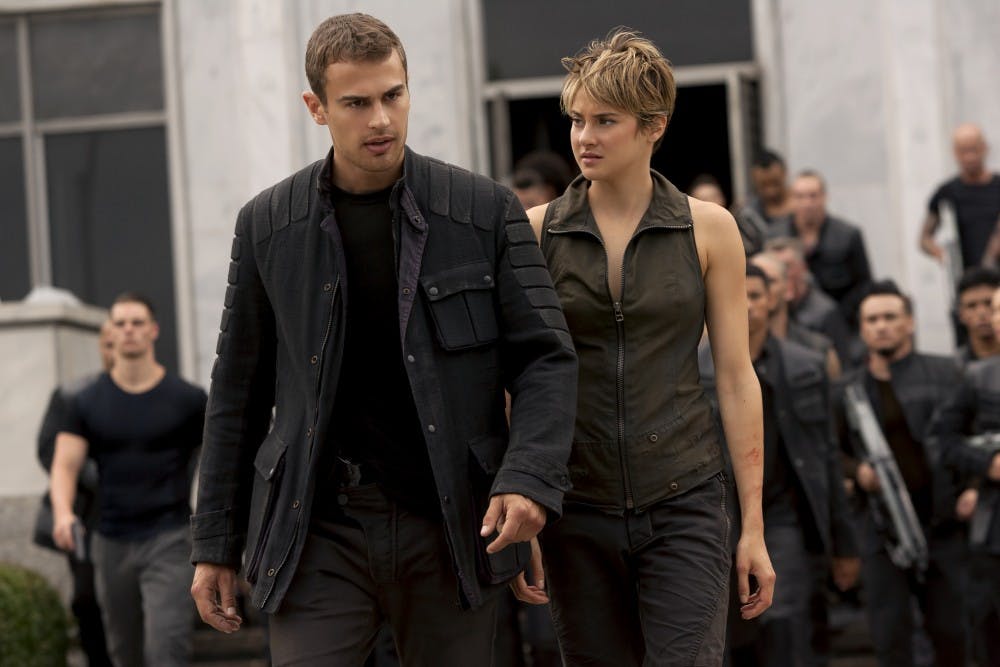As far as post-apocalyptic series go, “Insurgent” (directed by Robert Schwentke) is one of the rare sequels that manages to live up to the expectations set up by the first movie. Which is good news, since the series still has two more to go.
In “Divergent,” the first installment of this series, Beatrice Prior (Shailene Woodley, "The Fault in Our Stars") discovers that the leader of the Erudite faction, Jeanine (Kate Winslet, "Titanic”), is planning to seize power over the other four factions. “Insurgent” picks up when Beatrice, or Tris, is on the run, with her freshly chopped locks and macho boyfriend Four (Theo James, “Golden Boy”).
Simultaneously running from and on the way to overthrow Jeanine and her meathead army of Dauntless soldiers, they run into a rebel army of Factionless, led by none other than Four’s once-presumed-dead-mother (Naomi Watts, "The Impossible"). Confused? Basically, their society is in chaos, and Tris is the only one who can save it.
The external conflict, however, is only half the movie. Throughout her journey, Tris battles her inner demons: self-hatred and guilt over the deaths of her mother, father and friends. Here, Woodley’s acting shines, touching the audience with the honesty of her emotions. For a movie targeted towards teenagers and adolescents dealing with their own inner conflicts, it is a message that resonates.
One of the most poignant scenes comes early in the movie, when Tris, Four and her brother Caleb Prior (Ansel Elgort, "The Fault in Our Stars") are attacked on a train by a group of Factionless. Tris and Four’s Dauntless training kicks into gear and they incapacitate one after another without hesitation or mercy. Caleb, being an Erudite, hesitates, unable to join in even to save his sister. Elgort portrays his character as conflicted, good at heart but lacking in his sister’s fearlessness, and forces the audience to pause and question the amount of violence we’ve come to accept from youths on screen.
The amount of violence in “Insurgent” certainly outdoes its prequel and even other post-apocalyptic film series such as “The Hunger Games” series and “The Maze Runner.” By this point, the killing of young adults by other young adults has become an afterthought. At the same time, however, it ceases to become the focus of the film, allowing the personal development of the characters to take its place. Unlike its counterparts, this book-to-film-production manages to take the viewer into the character’s minds and hearts, instead of just being another outsider looking in.
With nonstop action and a heartthrob cast, “Insurgent” has nailed the formula for enticing its target audience. The message of Veronica Roth's book, however, hasn’t been lost yet, and for the sake of today’s youth, hopefully it won’t be.





